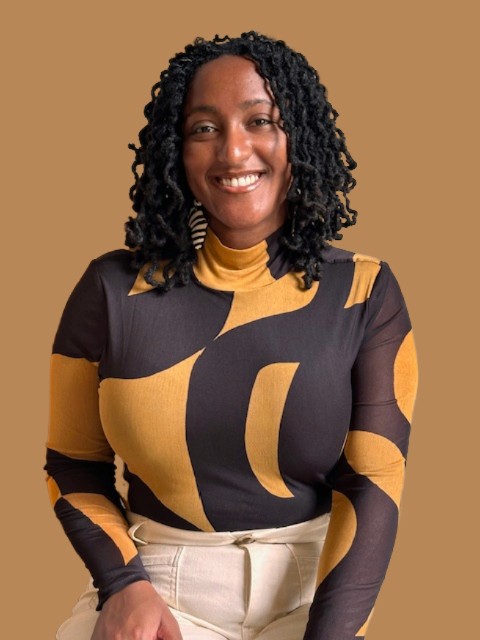Taylor Bland
Executive Function Coach
What are your areas of interest?
Goal setting & planning
Managing work, school and daily personal tasks
Implementing social-emotional (SEL) tools
Self-advocacy skills
Using organizational tools effectively
Creating stronger note-taking & study habits
Navigating collegiate admissions, vocational and other related opportunities
Improving overall self-confidence and trust
Best way for potential clients to contact you
Taylor Bland, M.S.Ed. (she/her), is a former K-12 special educator and current executive function coach and business owner with over 10 years of experience in building individual's confidence in understanding and embracing their neurodiversity. To connect with, motivate and challenge her clients, she uses a holistic approach in building client knowledge of EF, their personal strengths as well as the tools, resources and skills needed to take off the “mask” and thrive. As executive function coaching requires the space and openness to new skills and ideas, relationship building with intentional communication is pertinent to the coaching journey. No micromanagement, "one-size fits all", and shaming over here! Executive function coaching should be an experience of warmth, affirmation, understanding, care and personalization, from someone who is neurodivergent and UNDERSTANDS.
What is a superpower folks with ADHD have?
Pattern recognition! Your body attends to the small details and so does your mind. It may serve as a distraction at times but just as often (if not more frequently), it can be your greatest skill in your relationships with others, as a leader, at your job, and in a crisis/emergency.
What is a superpower folks with anxiety have?
Overthinking is a symptoms of anxiety but it is also a super power! What it takes to overthink often lends to greater attention. In this way, overthinking can also mean being super prepared. In addition, having to constantly battle feelings steeped in worry, fear and concern also take resiliency, serving as a reminder that you are greater than the overwhelm, always.
What do you recommend to help clients focus on their work?
Feeling stuck, unfocused, and can’t figure out why? Sometimes the solution is as simple as changing your clothes to feel more regulated.Even your go-to comfy sweater might be irritating you today—maybe it’s a little scratchier than usual. Or those microfiber leggings might feel fine at first, but once you’ve started sweating from a stressful day, they become distracting. That old t-shirt with a hole under the arm? It might be quietly sending your nervous system into a spiral.Take a moment to check in with your senses—smell, sight, sound, and touch.--Lighting: Make sure the lighting in your space matches the task. Dim lighting can help with stress during mentally demanding tasks, while brighter light is important for tasks that require visual focus. Don’t forget to check the brightness on your laptop screen, too.--Smell: You might enjoy eating in your workspace, but lingering food smells can affect your ability to concentrate. Try removing dishes, taking out the trash, and freshening up your space.--Sound: That playlist that usually calms you might be too calming right now. If lyrics are pulling your attention, switch to instrumental music or nature sounds. (Pro tip: if you keep stopping to sing along, try an instrumental track from lesser-known songs!) Or go silent altogether and pop on some noise-canceling headphones.--Environment: Close that creaky door. Adjust the thermostat. Put on or take off a layer. Small tweaks can make a big difference.Most importantly, be honest with yourself about your needs. Your focus routine might not look like your friend’s or your favorite TV character’s—and that’s okay. Whether it looks “boring” or “chaotic,” what matters most is that it works for you.
Is there a recent testimonial you'd like to share from a client?
"I've had the pleasure of working with Taylor for 5 years. I'm impressed! Taylor is an excellent listener, a giver of her talents and time and deeply committed to her students, clients and community." --Leigh Sims (she/her), Founder of EdCoSpace
What does mental wellbeing mean to you?
I view mental well-being as the alignment between our reality and our mind, body, and spirit. When we feel aligned in this way, we’re better able to recognize and correct small misalignments, offer ourselves grace when needed, hold ourselves accountable when necessary, and trust both ourselves and the universe.This is why it’s essential to lead with our identities in practice—our lived experiences, both individual and collective, shape our realities, which in turn influence our mind-body-spirit alignment.Often, the response to misalignment is a call to do more inner work. But sometimes—and in many cases, often—the greater need is to change aspects of our external reality in order to achieve true alignment. This might mean shifting our living situation, jobs, community, social circles, or even navigating and transforming our broader socio-political experiences.
Why do you refer clients to focused space?
Focused is the practical , everyday checkpoint/pulse-check/accountability measure that allows clients to implement the wisdom they both carry in their lives and have newly acquired through coaching and other supports. Success is both in the learning and doing and Focus offers resources and tools for both!
Qualifications
Johns Hopkins University, Masters of Science in Education (M.S.Ed.), Specialized Instruction
Marquette University, Bachelors of Arts, Psychology & Social Welfare & Justice
Client Expertise
Neurodivergent children, teens and adults (or individuals with executive function challenges), BIPOC, LGBTQ+, post-incarcerated women, femmes and teens.
At B-Empowered EFC, I use a holistic, trauma-informed approach to help clients understand executive functioning, identify their strengths and areas for growth, and navigate barriers that impact well-being. With mindfulness and care, I address challenges that impact positive self-identity and well-being such as inequitable systems and personal setbacks while emphasizing access to protective factors, including community-based support and anti-oppressive (e.g. anti-racist, -colonialist, -ableist, -cisheteronormative) advocacy and resource allocation. Through accountability measures like progress monitoring and reflective practices, my clients gain the awareness, skills, and confidence to take charge of their coaching journey with lasting impact.

